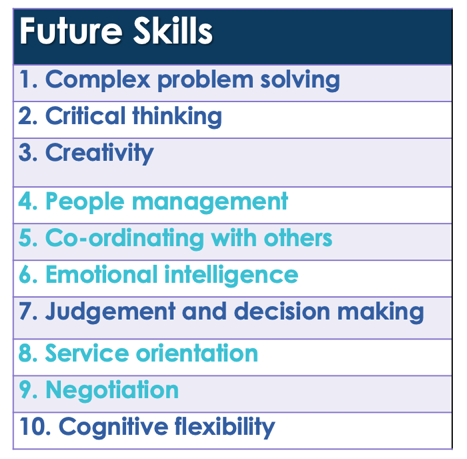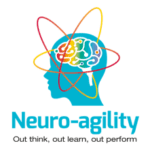How to future proof your talent
The world of work is changing with technological advancements and artificial intelligence, and it will continue to do so more and more rapidly in future years. One of the priorities and challenges for organisations has become how to keep their people’s skills relevant, as their jobs are uptaken by machines and technology.
Carole Gaskell, Founder and CEO of Full Potential Group, says that if we embrace AI, the impact for the workforce is that we have to become even more human. If machines can do the mechanical work, it’s time for us to embrace our human qualities at a profoundly different level and to bring out abilities that weren’t required before.
There are three fundamental aspects that characterise our humanness: our unique brain power, our heart power (emotional intelligence) and our intuition (gut power). Developing these specifically human aspects further is the answer to remaining relevant in the future of work. In fact, the World Economic Forum’s report on the key skills needed for 2020 and beyond states that five of these are brain power skills and five are emotional intelligence skills, with intuition strengthening both the head and heart skills.

At the top of the list for the most in-demand skills are critical thinking, complex problem solving and creativity, as well as empathy, negotiation and people management. We could develop each of these individually, but there is also a faster approach to prepare ourselves to embrace the future and develop these at the same time. Another fundamental skill human beings have, that potentially underpins these other abilities, is the capacity to adapt.
 Adaptability is more than being flexible, it’s about learning new things and going with the flow of change instead of resisting it. Change can be difficult because it involves doing things we are not familiar with, or things that are completely new to us, which require us to step outside our comfort zone. We become adaptable when we are comfortable with the uncomfortable, when we make a conscious effort to learn something new or to see something from a different perspective.
Adaptability is more than being flexible, it’s about learning new things and going with the flow of change instead of resisting it. Change can be difficult because it involves doing things we are not familiar with, or things that are completely new to us, which require us to step outside our comfort zone. We become adaptable when we are comfortable with the uncomfortable, when we make a conscious effort to learn something new or to see something from a different perspective.
The most efficient way to develop adaptability is by practising it in every day, low stake situations. It could be by taking a different route to work, having a conversation with a colleague you don’t know well, or trying a new hobby. These are easy things to do, but they stretch you just a little bit further than your normal routine would, allowing you to grow and learn to adapt in a manageable way.
By improving your learning ability and your adaptability, you can more easily acquire new skills and embrace the changes the future will bring to the way we work. Start with small changes and variations until you feel comfortable to take it to the next level and challenge yourself more.
 You can also complete a Neuro-agility profile, which tells you how flexible your brain is and provides you with specific and personalised techniques to improve the speed and flexibility of your learning and adaptability. The tool is a starting point for development, as it brings self-awareness of your abilities and predispositions, while allowing you to track your progress.
You can also complete a Neuro-agility profile, which tells you how flexible your brain is and provides you with specific and personalised techniques to improve the speed and flexibility of your learning and adaptability. The tool is a starting point for development, as it brings self-awareness of your abilities and predispositions, while allowing you to track your progress.
To find out more, visit: https://fullpotentialgroup.com/neuro-agility/.


Comments
Post a Comment